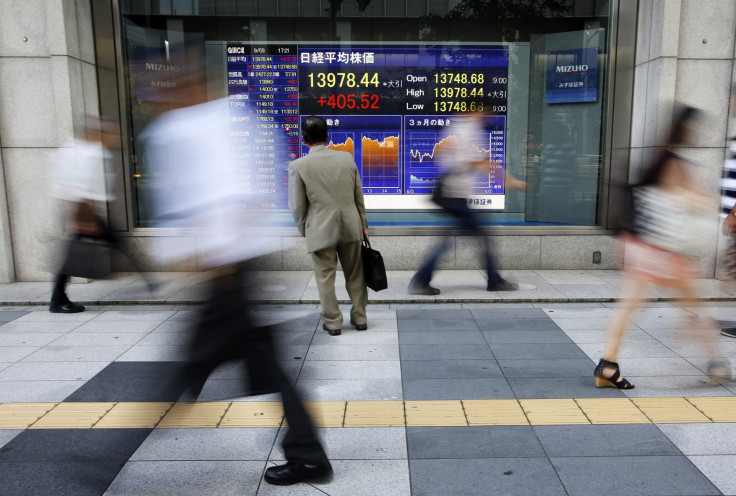Asian Markets Soar After Fed’s Wednesday Surprise; Stocks, Currencies Rise

Asian markets rallied Thursday after the U.S. Federal Reserve surprised investors and economists alike on Wednesday, stating that it would not curtail the pace of its aggressive $85 billion-a-month bond-buying program until there was stronger evidence of a sustained improvement in the world's largest economy.
The Fed’s decision to hold off on what has come to be known as quantitative easing, or QE, sparked a rally across world markets, and Asian markets, which witnessed volatile trade throughout the summer on concerns over the Fed’s decision, surged Thursday with Australian shares hitting a five-year high.
“Conditions in the job market today are still far from what all of us would like to see,” Chairman Ben Bernanke said, at a news conference Wednesday, after a two-day meeting of the FOMC. “The committee has concern that rapid tightening of financial conditions in recent months would have the effect of slowing growth.”
On Wednesday, the Federal Open Market Committee, or FOMC, decided to maintain its bond-buying program at its current strength by a 9-to-1 vote, in a move that surprised many who were near certain that the Fed would make a token reduction to its monetary stimulus program.
The FOMC also decided to keep the target range for the federal funds rate between 0 to 0.25 percent, and noted that it "anticipates that this exceptionally low range for the federal funds rate will be appropriate at least as long as the unemployment rate remains above 6-1/2 percent," according to a Fed statement.
The MSCI All Country Asia index, excluding Japan, rose 2.03 percent to hit a four-month high on Thursday. Japan’s Nikkei rose 1.45 percent, Australia’s S&P ASX 200 rallied 1.1 percent, while the Philippine stock index, PSCi, surged 2.45 percent. Indonesia’s JSX Composite, which soared more than 7 percent in early trade later retreated to trade up 4.5 percent.
Hong Kong’s Hang Seng Index rallied 1.71 percent, Singapore’s Straits Times index added 1.27 percent and the FTSE Bursa Malaysia Top 100 index was up 1.07 percent. The Shanghai Composite index and South Korea’s KOSPI Composite index are closed until Monday due to public holidays in their countries.
In India, the benchmark BSE Sensex stock index surged 2.73 percent while the rupee surged 2.8 percent and was trading at about 61.95 -- a one-month high -- against the dollar in Thursday morning trade. Other Southeast Asian currencies such as Thailand’s baht, and Indonesia’s rupiah gained more than 2 percent against the dollar.
Both the rupee and the rupiah had suffered severe losses against the dollar after the Fed hinted in May that it would begin winding down the QE policy soon, triggering fund outflows from these nations’ markets. International investors reportedly had pulled out $3.7 billion from Indian markets through August, sending the BSE Sensex to an 11-month low and the rupee to a historic low of 68.85 on Aug. 28.
Brazil’s Ibovespa Brasil Sao Paulo Stock Exchange Index closed 2.64 percent up following the Fed’s decision on Wednesday.
The Standard & Poor’s 500 Index and the Dow Jones Industrial Average closed at record highs on Wednesday while the Nasdaq closed at its highest level since Sept. 22, 2000. The yield on the 10-Year Treasury note fell 15 basis points to 2.70 percent following the Fed’s announcement.
© Copyright IBTimes 2025. All rights reserved.






















